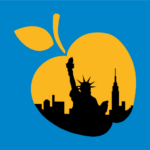Vitamins are a class of substances that are necessary for normal cell growth and function.
Vitamins sources and Vitamins deficiency apps includes 13 essential vitamins. These vitamins are essential for proper body functioning. These vitamins are:
* Vitamin A
* Vitamin C
* Vitamin D
* Vitamin E
* Vitamin K
* Vitamin B1 (thiamine)
* Vitamin B2 (riboflavin)
* Vitamin B3 (niacin)
* Vitamin B6 (pyridoxine)
* Vitamin B12 (cyanocobalamin)
* Pantothenic acid (B5)
* Biotin (B7)
* Folate (folic Acid or B9)
Vitamins can be divided into two groups:
* The body stores fat-soluble vitamins in its liver, fatty tissues, and muscles. Vitamins A, D and E are fat-soluble vitamins. They are more easily absorbed by the body when there is dietary fat.
* The body does not store water-soluble vitamins. Vitamin C and all B vitamins are the nine water-soluble vitamins. The body excretes any excess or leftover vitamins through the urine. To prevent deficiency or shortages in the body, they must be taken on a regular basis. Vitamin B12 can be stored in your liver for many years, but this exception is rare.
The following information is about the application vitamins sources and Vitamins deficiency:
1. Vitamin A Sources – Vitamin A Deficiency Symptoms
2. Vitamin B1 Sources: Vitamin B1 Deficiency Symptoms
Vitamin B2 Sources – Vitamin B2 Deficiency Symptoms
4. Vitamin B2 Sources: Vitamin B2 Deficiency Symptoms
5. Vitamin B3 Sources: Vitamin B3 Deficiency Symptoms
6. Vitamin B5 Sources: Vitamin B5 Deficiency Symptoms
7. Vitamin B6 Sources: Vitamin B6 Deficiency Symptoms
8. Vitamin B7 Sources: Vitamin B7 Deficiency Symptoms
9. Vitamin B9 Sources: Vitamin B9 Deficiency Symptoms
10.Vitamin B12 sources – Vitamin B12 deficiency symptoms
11. Vitamin C Sources – Vitamin C Deficiency Symptoms
12. Vitamin D Sources – Vitamin D Vitamin D foods – Vitamin D deficiencies
13. Vitamin E Sources – Vitamin E Deficiency Symptoms
A diet rich in nutrients is a good choice. Nutrient-rich foods (or nutrient dense) are low in sugar and sodium. They also have a lower intake of starches, bad fats, and starches. They are high in vitamins and minerals, but have very few calories. Micronutrients are vitamins and minerals that your body requires. They are essential for your health and nourish your body. They can lower your risk of developing chronic diseases. They can be absorbed by the body through food.
To get different vitamins, try eating a variety of food. Fruits and vegetables are naturally nutrient-rich. High in nutrients are fish, lean meats, whole grains, dairy products, legumes and nuts as well as lean meats.
Your body may not receive all the micronutrients it needs. Some people eat high-calorie foods with low levels of micronutrients. These foods can also have added sugar, salt, saturated or trans fats. This diet can lead to weight gain. This diet can increase your chances of developing heart disease or type 2 diabetes.
Naturally, ruits are low in fat. These vegetables add variety, nutrients, taste, and flavor to your diet. You should look for brightly colored fruits and vegetables, particularly orange and dark green.
These foods are worth trying:
* Broccoli and cauliflower.
* Leafy greens such as chard and cabbage, romaine and bok choy.
* Dark leafy greens such as spinach or kale.
* Pumpkin, squash, sweet potatoes, sweet potatoes, turnips and carrots
* Snappeas, green beans and bell peppers.
* Apples and plums, mangos. Papaya, pineapple.
* Blueberries, strawberries and cherries.
* Citrus fruits such as oranges and grapefruits.
* Peaches, melons, and pears
* Avocados and tomatoes.
Get the Vitamins Sources & Vitamins Deficiency App and take control of your health
Vitamins sources & Vitamins deficiency
Information
Verified Safe and Secure
How to install Vitamins sources & Vitamins deficiency?
Step 1:
Click on the official app store link above.
Step 2:
Tap "Install" to download Vitamins sources & Vitamins deficiency from within Google Play Store or Apple App Store.
















